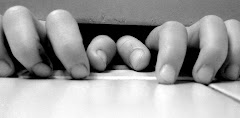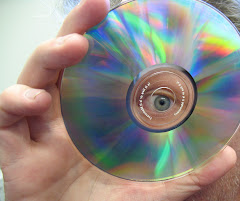
Saw this plaque and others just like it cemented into the sidewalks all over downtown Chicago. People bustled in and out of the cold, going to their workplaces or to the Dunkin Donuts or to hear a band or to buy some new underwear, but they all seemed oblivious to these plaques.
Why did they strike me as vaguely threatening?
Are they still legally binding?
Who is their audience? (Just a reminder, you frozen walkers: WE are in CONTROL!!!)
Why did they strike me as vaguely threatening?
Are they still legally binding?
Who is their audience? (Just a reminder, you frozen walkers: WE are in CONTROL!!!)
Can the Dunkin Donuts in front of the sidewalk legally kick people off the sidewalk?
If so, should I fear Dunkin Donuts? And how can I? Their donuts and coffee are so scrumptiously delicious. Please don’t make me fear Dunkin Donuts.
Who owns the city?
Nations don’t have souls (Georgia will not go to heaven when it dies) but when people talk about the soul of America it’s not the gibberish of the scary people I saw hanging outside the train terminals--you know, the vaguely crazy people who ignored everyone else and made a beeline directly for me to ask me for money so they could wipe me down with a squeegee. (And I've got to say being soaked is no fun when it's freezing outside--and I wished the squeegee people would clean out their water more often. But I digresss.) We kinda know what they mean when people talk about the "soul" of a place. But is there one essence that separates nation from nation? Is it a hundred different things? What is a nation? Well, it’s gotta be at least the following:
Land.
People.
Land.
People.
Culture and cultural artifacts, past and present. Stuff like art and architecture, language, laws, institutions, and customs.
Are all of these items of equal importance in defining a place? Or does it depend upon the place? In other words is, say, Key West defined more by its physical location than, say, Des Moines? Dunno.
Take Chicago. Chicago is a great city, my favorite city that I have personally visited. For decades it chugged along being Chicago with all its colorful Chicago history. Most people acknowledged that Chicago was a culturally important city and many people, like myself, thought it was a great city. But the main point for what I’m trying to convey is that it had an identity. Common signifiers came to mind when “Chicago” was mentioned.
And then in 2004 Chicago opened Millennium Park.
Millennium Park is the happiest place in the world.
Note the lack of qualifiers.
The happiest place in the world. You heard me.
Really. It is.
Or at least in America. Hey, I’ve been to Disney Land and Niagara Falls and the St. Louis Arch and the Golden Gate Bridge and the Grand Canyon and seventeen other national parks and loads of cities and museums and on and on. But nowhere but nowhere have I seen so many people, and such a remarkably diverse set of people, smile and laugh and giggle and act foolishly happy and feel the rapture of being alive (to paraphrase ol’ Joseph Campbell) like I did at Millennium Park.
More specifically they felt such rapture at "Cloud Gate," created by architect Anish Kapoor. (No, I’m not really smart; I have access to Wikipedia.)
Cloud Gate. AKA The Bean.
The Bean is catnip for humans. It taps into our human feelings of:
1) Identity
2) Play
3) Being
4) Sociability
5) The connection of inner and outer.
It really is the most amazing place I’ve ever been. It was like how I think of Heaven: happy folks gazing on Being (or, here, gazing on Bean—nyuh, nyuh, nyuh) with play and delight.
Anyway, back to where I was. I loved Chicago before it had Millennium Park but now wouldn’t you know it that Chicago has gone and redefined itself. Much like Paris redefined itself through the Eiffel Tower.
So, what gives something its essence? For me, the essence of Chicago (and life??) is The Bean. But Chicago was still Chicago before The Bean. But now it’s even more Chicago.
Who owns the city?








.jpg)




5 comments:
I love Chicago too but we haven't been to Millinium Park. Guess we'll have to make it our number one destination next time.
it will be your gain.
i suppose if you tried really, really, really, really hard you could not like the bean and see it as a bizarre manifestation of ego and vanity. try as you may, you cannot get away from your reflection.
but it strikes me certainly less vain than, say, having kids.
I love how you tyrannize even over travel destinations. Your despotism has no limits, my friend. And that's why I like you so much.
My tyranny: You don't know the half of it.
But I tyranize only over those in need of it.
Pay no attention to the fact that this blog, and all the tyranny herein, is directed to all of humanity. That says nothing, absolutely nothing, about my tyrannical impulses.
Nothing.
Well, maybe a little.
Okay, a lot.
Okay, it says it all.
But thanks for the comment, jerky.
I agree that the bean is pretty damn cool looking, but I don't know that I agree that the bean is Chicago. I think Chicago stays Chicago if the bean moves or gets blown up or whatever. Moreover, should the bean go someplace else, it might even be cooler than it is in Chicago. Maybe in 50 years the bean will be Chicago - but even then I'm not sure.
Post a Comment